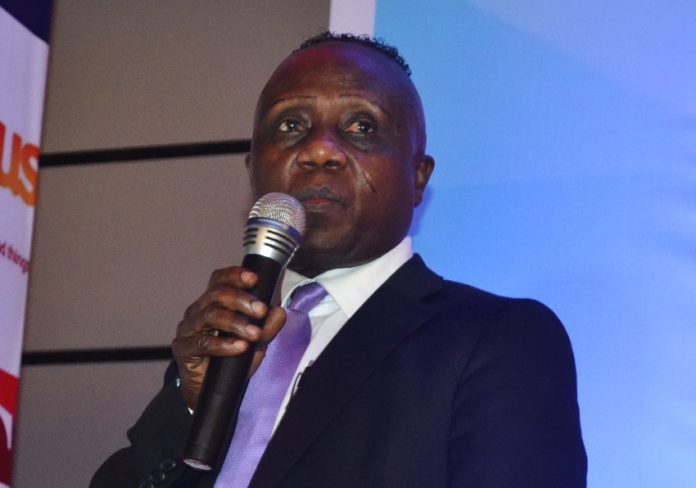The Director of Research at the Institute of Economic Affairs (IEA), Dr John Kwakye wants the interest rate of 30 percent to be reduced immediately by the Bank of Ghana (BoG).
He says the economy can no longer survive on the 30 percent rate.
“The burden placed on the economy by 30% artificial interest rates can not be tolerated anymore. Interest rates must be reduced through monetary policy rationalisation, reduction in government borrowing and reinforced banking regulation.
“Banks have been riding on artificially high interest rates fuelled by ineffective monetary policy and excessive Gov’t borrowing to post high profits. Bank of Ghana must rein in interest rates as a matter of urgency to reduce the burden on the economy,” he wrote on his X platform.
He added “Bank of Ghana has a duty to reduce the interest rate burden on the economy. No business or economy can thrive with over 30% [policy] rate. The problem lies in the Bank’s exclusive reliance on interest rates to control inflation without addressing the supply/cost drivers as well.”
BANK OF GHANA HAS A DUTY TO REDUCE THE INTETEST RATE BURDEN ON THE ECONOMY. NO BUSINESS OR ECONOMY CAN THRIVE WITH OVER 30% INTEREST RATES. THE PROBLEM LIES IN THE BANK’S EXCLUSIVE RELIANCE ON INTEREST RATES TO CONTROL INFLATION WITHOUT ADDRESSING THE SUPPLY/COST DRIVERS AS WELL.
— J. K. KWAKYE (@JOHNKWABENAKWA1) JANUARY 14, 2024
At the last Monetary Policy Committee (MPC) press conference held in Accra on Monday, November 27, the BoG decided to maintain the policy rate at 30 percent.
Governor of the Bank of Ghana Dr Ernest Addison stated that although inflation was dropping, the rate was still high, hence the decision to maintain the policy rate at 30 percent.
The Policy Rate is an interest rate that the central bank sets in order to influence the evolution of the main monetary variables in the economy like consumer prices, exchange rate or credit expansion, among others.
The Committee noted that tighter financing conditions, slower growth in the manufacturing and services sectors, and China’s slower recovery were exerting some moderating influence on global economic activity.
Earlier aggressive policy tightening by advanced economies central banks has contributed to the dampening of inflationary pressures with headline inflation decelerating in many of their economies. This has led to a pause in the tightening cycle. But core inflation remains high and is declining slowly due to strong labour markets, Governor Addison said.
Create a Ministry of the Economy alongside MoF to be responsible for economic planning – Kwakye
In the outlook, he added, central banks are expected to maintain policy rates at high levels for much longer periods to contain the still-elevated inflation levels relative to targets.
The prevailing higher policy rates, long-term bond yields, and renewed strength of the US dollar could continue to keep global financing conditions tight with consequences for Emerging Market and Developing Economies, he added.
Furthermore, rising geopolitical tensions are creating uncertainty about crude oil prices and full crystallization of this risk could undermine the disinflation process in many economies, including Ghana.
The burden placed on the economy by 30% artificial interest rates can not be tolerated anymore. Interest rates must be reduced through monetary policy rationalisation, reduction in Govt’s borrowing and reinforced banking regulation.


